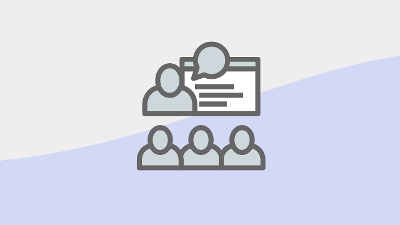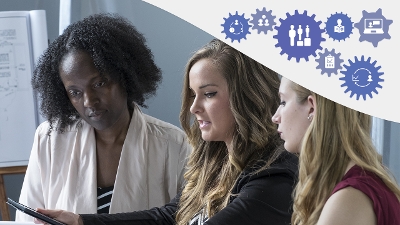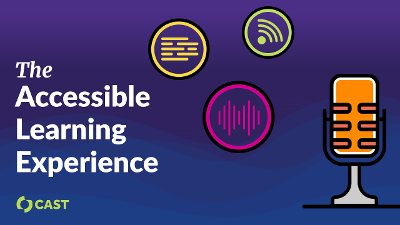Showing results 51-60 of 168 for accessible technologies
Search results
-
Presentation

9:20AM – 10:20AM ET on Thursday, January 30, 2020
Learn how to make self-created K-12 and higher ed STEM curriculum materials - including documents, graphics, and videos - accessible to all learners. The four accessible design principles of POUR will be applied to STEM-related course content through a series of material makeover demonstrations. Common examples of materials created by K-12 and higher ed STEM faculty will be first displayed in traditional formats, followed by POUR-aligned accessible versions. Skills covered in this session will include best practices for writing alt text and descriptions for technical images, charts, and graphics; creating closed captions and audio descriptions for video; the application of MathML in documents and websites to make mathematical and scientific notation accessible; and tools for making coding and basic computer science concepts accessible for all learners.
-

Explore the coordinating systems needed for Workforce Development and learn how to develop or revise a workforce development system to address best practices for the provision of accessible materials and technologies.
-
The AEM Center's Online Learning Series on Canvas to help individuals or teams select, create and acquire accessible materials and technologies for everyone who needs them to support their learning and employment goals.
-
Guide
AEM Center at CAST, 2022
This guide is also designed to prepare individuals to be active and meaningful contributors to a team that is working toward systemic changes in programmatic accessibility as it relates to workforce development
-
Presentation

8:30AM – 9:30AM ET on Friday, January 28, 2022
Panelists represent AT leadership perspectives from the local, national, and international levels. They will share their perceptions of technology systems change and consider how the AT field can develop the next generation of AT leaders to meet future demands.
-
Presentation
11:00AM – 12:00PM ET on Tuesday, September 26, 2023
Join this session to gain insight on easy-to-implement techniques that can help the busy educator or service provider vet technology tools for accessibility. Participants will learn to quickly to decide which tools should be loved (and kept) and which ones should be…listed (as in passed on).
-
Podcast

National AEM Center at CAST, 2023
In this Season 2 bonus episode, we interview two members of the South Carolina Department of Education and discuss how they improved digital accessibility within the agency and for districts across the state.
-
Presentation
2:15AM – 3:15AM CT on Thursday, March 14, 2024
Educators and trainers will learn and explore considerations–including accessibility and Universal Design for Learning (UDL)– for incorporating technology in their classrooms. Participants will learn how to select and use technology that meets the needs of all learners, including learners with disabilities, second language learners, and other underserved populations.
-
Presentation
8:00AM – 9:00AM CT on Thursday, October 24, 2024
Join this engaging session where experts from CAST and Minneapolis Public Schools (MPS) challenge misconceptions about accessible educational materials (AEM) and assistive technology (AT). Rather than considering these tools as cheating, we’ll explore how they foster Universal Design for Learning (UDL) and empower students. Through personal anecdotes and interactive discussions, we’ll reshape perspectives and champion accessibility in education.
-
Presentation
11:30AM – 12:30PM ET on Wednesday, July 17, 2024
Technology features, such as on-demand read-aloud and other customizable supports, allow students to personalize their reading experience to meet their own unique needs and preferences. Join this fun session as we explore how you can create and ensure that your educational materials are accessible, and ways accessible and assistive technologies interact with those materials so that students can decode and interact with the content.
